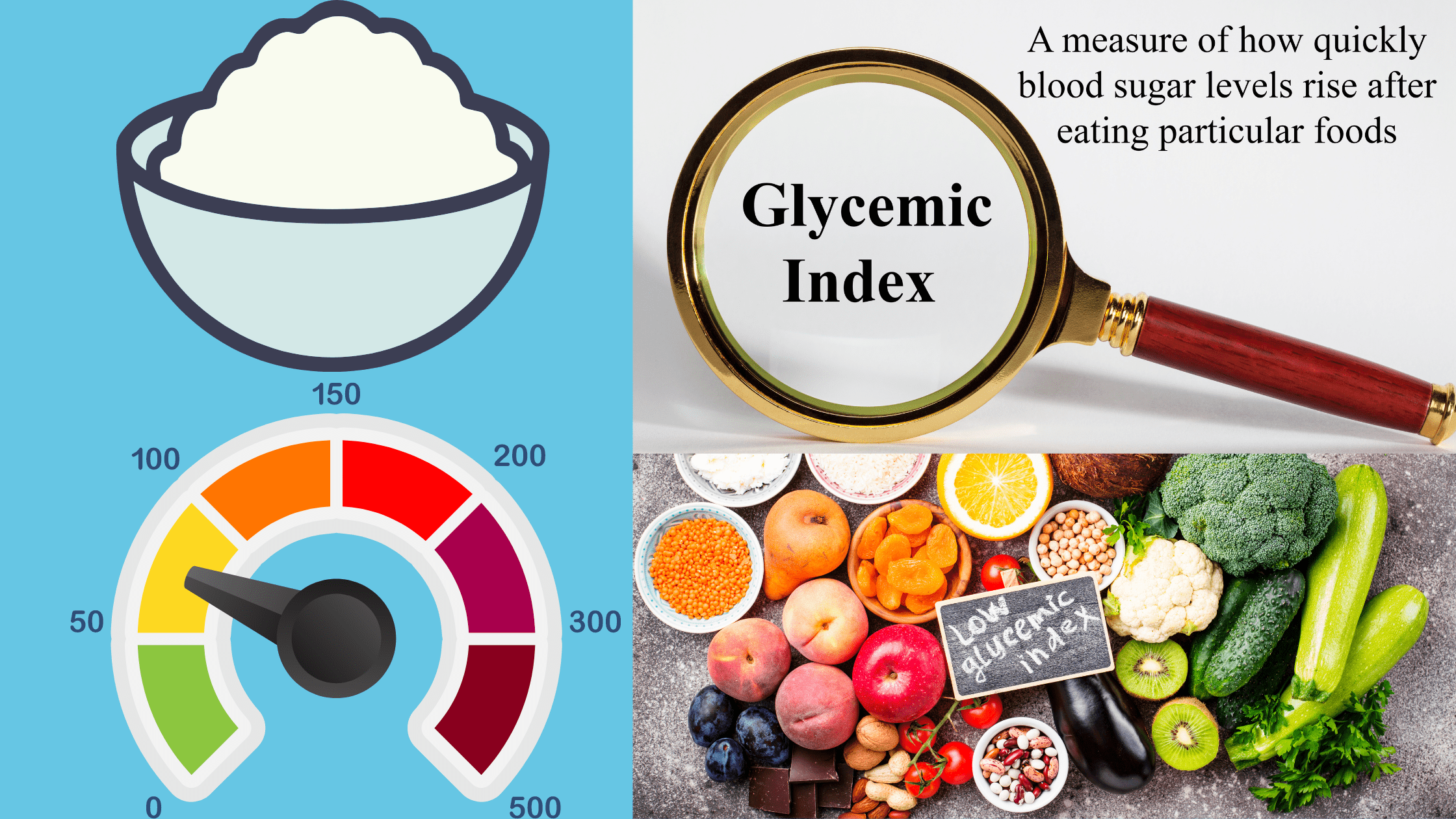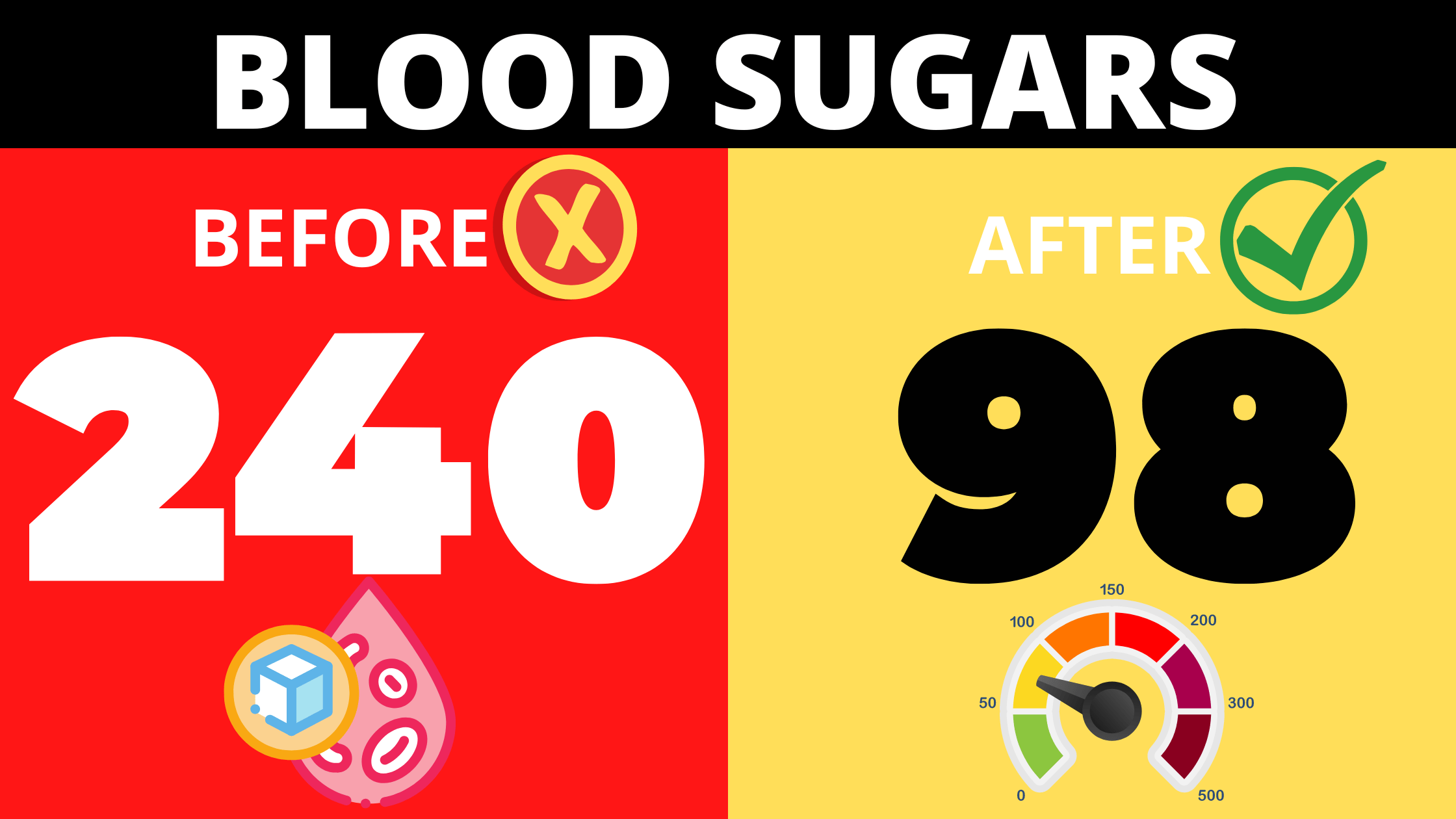Does drinking water lower blood sugar? It may seem counterintuitive, but many health experts say that the answer to this question is yes—with one caveat. If you have diabetes or prediabetes, it’s crucial to drink water with your meals because it helps slow down the absorption of carbs into your bloodstream and thus prevents blood sugar spikes. However, if you do not have diabetes or prediabetes, drinking water with meals does not affect blood sugar levels and can even cause them to rise slightly in some cases.
Yes, for Type 2 Diabetes
The quick answer is yes; drinking water may help lower blood sugar, especially in type 2 diabetes. Water prevents dehydration and helps flush out excess sugar through your urine. Drinking enough water can help balance the levels of glucose and insulin in your body, which reduces how high your blood sugar levels will get after a meal. It can also lead to better metabolism and weight loss for those with type 2 diabetes. A study by Willett (2008) showed that people who drank more than six glasses of water per day were less likely to develop hyperglycemia than those who drank two or fewer glasses per day. How fast does water lower blood sugar? One study found that water reduced fasting glucose levels by 4% over two hours as opposed to an increase of 3% over the same period when nothing was consumed (Fernstrom & Wolever). So while water doesn’t immediately lower blood sugar, it seems to have a long-term effect on reducing blood sugar levels. However, these results are specific to type 2 diabetes patients, and more research needs to be done on this topic.
12 Ways to Lower Your Blood Sugar
One of the most crucial aspects of diabetes management is maintaining stable blood sugar. So, when we talk about lowering blood sugar, we mean bringing it from a high level to within the normal range. There are many ways that this can be done, and what works for one person may not work for another. The good news is there are many resources available to find out how fast water lowers blood sugar and what other methods might work best for you! Here are 12 Ways to reduce blood sugar from a spiked level.
1. Eat Adequate Fiber
A fiber diet is one of the best ways to regulate blood sugar. Fiber slows down the absorption of sugar into the bloodstream, which helps to keep blood sugar levels steady. Plus, fiber is essential for good gut health and can help to lower cholesterol levels. Aim for at least 25 grams of fiber per day.
Fiber lowers blood sugar by slowing down its absorption in your body. Eating fiber also stabilizes your blood glucose levels by balancing your insulin intake. The key to a healthy fiber diet is variety: choose whole-grain products, vegetables, and fruit to boost fiber intake since these have more vitamins and minerals than processed snacks or drinks made with refined grains. For example, one cup of cooked kale has 7 grams of fiber while an apple has 4 grams; broccoli boasts 6 grams per cup! If you’re counting carbs, 1 gram of dietary fiber has a carb equivalent of 4 calories compared to 8 calories for 1 gram from refined grains.
2. Regulate Carbohydrate Diet
When you have diabetes, your body has trouble regulating blood sugar levels. This can lead to either hypoglycemia (low blood sugar) or hyperglycemia (high blood sugar). One way to help regulate blood sugar levels is by drinking water. Water helps the body absorb and use carbohydrates, which can help stabilize blood sugar levels. However, it’s important to remember that water is just one part of a healthy diet for people with diabetes. A balanced diet with plenty of fruits, vegetables, and whole grains is essential for managing diabetes. Eating three meals daily and avoiding excessive snacking will help stabilize blood sugar levels. In addition, eating small portions of high-carb foods like potatoes, white bread, corn flakes, rice cakes, pasta with tomato sauce, etc., instead of large amounts at once, will help prevent spikes in blood sugar.
3. Exercise Regularly
Exercise is another critical factor in controlling glucose metabolism and should be performed regularly for at least 20 minutes daily. It’s essential to stay hydrated while exercising, but this doesn’t mean drinking large amounts of water; it means drinking enough to keep your urine light-colored and consistently clear. The less water you drink, the more concentrated your urine will be due to the exercise, which can lead to hyperglycemia if not adequately monitored. A final suggestion would be to lower your salt intake during exercise because it can increase insulin resistance after a workout.
4, Utilize Diet Modification
Diet modification is something that is not spoken about much. However, it is crucial because some people with diabetes may get away with eating most types of food they like if they can be strict enough not to indulge. One way to do this is through portion control. Reducing the size of your meals, or switching to a smaller plate, will help you eat less and have more success in managing your blood sugar levels. It is also essential to stay hydrated while monitoring your intake. If you are getting at least six to eight glasses of water per day, there will be less stress on the kidneys, reducing hyperglycemia and how fast water lowers blood sugar in your body. So drink more water for a happier life!
5. Reduce Stress Levels
When under stress, the body produces cortisol and glucagon, which increase blood sugar levels. High glucose levels in the bloodstream can lead to many long-term health issues such as diabetes or heart disease. To lower blood sugar levels, people with diabetes must reduce stress by walking in nature or finding a hobby that helps them relax. Sometimes when one is under tremendous pressure, one needs to find a way to release it. Playing sports is another great way for stressed individuals to relieve tension and calm their nerves.
6. Focus on Food With Low Glycemic Index
Foods with a low glycemic index tend to release sugar into the bloodstream more slowly, which can help prevent spikes in blood sugar levels. So, if you’re looking to keep your blood sugar levels in check, it might be worth focusing on foods with a low glycemic index. Fruit, vegetables, and whole grains are all great options!
7. Drink water and stay hydrated

We all know that water is essential for our health, but did you know that it can also help regulate your blood sugar levels? That’s right; drinking water can help lower blood sugar levels, especially if you suffer from hyperglycemia (high blood sugar). But how does water do this, and how fast does it work? Well, it works pretty quickly, and water works through the kidneys. It flushes the kidney, stimulates urine production, and ultimately cleans it and helps it get rid of toxins and excess sugar. Of course, the best way to use water to regulate blood sugar levels is by staying hydrated throughout the day with zero-calorie beverages like iced tea or iced coffee. And while we’re on the topic, I want to say that dehydration can cause dizziness and dangerously low blood pressure too! So be sure to drink plenty of fluids each day for optimum health!
8. Monitor Blood Sugar Levels
If you have diabetes, monitoring your blood sugar levels is essential. High blood sugar, or hyperglycemia, can lead to serious health complications. Pouring a tall glass of water and downing it in one go may lower your blood sugar within the hour by as much as 20%. But be aware that only drinking water doesn’t work for everyone. How fast does water lower blood sugar? Different people react differently to other foods, so the best thing is to try and find out what works for you.
9. Consider Adding Some Useful Vitamins To Your Diet
Food that is rich in chromium and magnesium can significantly improve glucose metabolism. If you have diabetes, these two supplements will help to decrease the levels of hyperglycemia, and they may also slow down the progression of diabetes if taken regularly. An average person will find that drinking more water improves their overall health by improving their digestion and energy levels. It’s also been shown that people who drink more water have a lower blood pressure than those who don’t drink enough water. For those with type 2 diabetes, it has been shown that consuming a high-water diet is associated with a lower HbA1c level than those who do not drink enough water.
10. Consider Taking Some Useful Supplements Regularly
Supplements like Cinnamon, Berberine, and Fenugreek seeds, among others, can help reduce blood sugar levels. Consult with your physician or a dietician before taking any supplements.
This blog post aims to educate you on the importance of water in lowering blood sugar levels. At the same time, water may not be the best option for lowering blood sugar levels. It has been reported that drinking water may not lower blood sugar as quickly as some other drinks might. Furthermore, drinking too much water could also be counterproductive in some cases. If trying to lower your blood sugar levels, various methods might work better than drinking water alone. For example, several supplement options, such as cinnamon, berberine, and fenugreek seeds, can assist in reducing blood sugar levels through various pathways (please consult a physician or dietician before taking any supplements).
11. Get Quality Sleep
Quality sleep is essential to overall stress reduction. Sleep also plays a significant role in insulin production and glucose regulation. For example, one study showed that people who slept five hours or less had a 20% higher risk of developing diabetes, while those who slept more than eight hours had a 15% lower chance. In addition, sleep deprivation causes the body to release high levels of the stress hormone cortisol. As a result, it lowers human growth hormone levels (HGH), which can adversely affect blood sugar control and weight management.
12. Ensure A Healthy Weight
A healthy weight is essential for many reasons. First, it can help lower your risk for hyperglycemia, a condition with high blood sugar levels. Maintaining a healthy weight can also help you feel your best and have more energy. If you’re trying to lose weight, drinking water can help. That’s because it can help you feel full and lower calorie intake, lowering blood sugar levels. Plus, water is calorie-free and can help you stay hydrated. So, losing some weight if you are overweight or obese can improve your blood sugar levels.
Reasons Why You’re Not Losing Weight
If you’re not losing weight, it could be because you’re not drinking enough water. When you don’t drink enough water, your body holds onto what it has, causing bloating and weight gain. The best way to tell if you are drinking enough is by checking the color of your urine. It should be a light yellow or clear. It’s recommended that men consume at least 13 cups of water a day and women at least 9 cups a day to avoid hyperglycemia which is high blood sugar levels due to dehydration. How fast does water lower blood sugar? One study showed that those who drank two cups of water after a meal had lower glucose levels than those who did not drink any. So does water lower blood sugar? Yes! A study published in the Journal of Clinical Endocrinology & Metabolism found subjects lost more weight when they increased their daily fluid intake from 1.2 liters (about 6-8 glasses) to 2 liters (about 12-16 glasses).
Another reason you may not be losing weight may be due to your insulin resistance. Insulin is a hormone released by the pancreas to regulate blood sugar levels. Type 2 diabetes is usually caused by insulin resistance which means that your cells become less sensitive to insulin. Insulin resistance can also lead to higher cholesterol, triglycerides, and low HDL cholesterol, all contributing to heart disease risk factors.
2 Tips To Maintain Weight Loss After Dieting
Ongoing diet modification to maintain the weight loss is necessary to avoid insulin resistance and metabolic syndrome. In addition, hyperglycemia, a condition in which blood sugar levels are persistently elevated over a prolonged period, can be prevented by lowering the number of refined sugars in your diet. So, reduced portion and healthy choice is the first tip.
The second tip is regular exercise like walking or other aerobic activities to maintain a healthy body weight. Unfortunately, this is difficult for most people, so after successful weight loss, many regain it.
Complications of hyperglycemia
If untreated, hyperglycemia can lead to severe complications, such as heart disease, kidney damage, nerve damage, and blindness. The good news is that you can lower your blood sugar levels by adequately drinking water and implementing the other points discussed above.
Here are some possible complications of hyperglycemia:
- Diabetic Neuropathy: Abnormalities in the nervous system due to high blood sugar.
- Retinopathy: Damage to the retina in the eye due to high blood sugar
- Nephropathy: Damage to kidneys due to high blood sugar
- Cardiovascular Disease (CVD): Damage done on artery walls due to high blood sugar.
- Erectile Dysfunction: inability to maintain an erection in men and loss of sexual desire in women
- Pregnancy Complications: Complications during pregnancy include miscarriage, intrauterine growth retardation, and increased preeclampsia or gestational diabetes risks.
- Depression: Mental illness caused by low blood sugar levels.
Diabetes Knowledge Can Help Prevent Complications
A new study shows that many people with diabetes don’t know enough about their disease. A survey of more than 600 patients found that only 37 percent knew their condition could be controlled by diet and exercise. Another 22 percent said they had no idea how to handle it. The study, published in Diabetes Care, also found that most patients didn’t know how to test for complications such as nerve damage, kidney failure, or blindness.
The study’s lead author, Dr. David M. Nathan, said that people with diabetes should take responsibility for their health. “If you don’t know your numbers or blood sugar levels, then you can’t understand how your diabetes is affecting your life,” he said. “You need to be proactive about managing your diabetes.”
The study highlights a troubling gap in diabetes knowledge, but it also shows that information can help prevent health problems. So if you have diabetes, or suspect you might be at risk for it, don’t let a lack of knowledge keep you from taking action. To learn more about your condition and how to control it, talk to your doctor or contact a local diabetes center. Diabetes is severe, but with proper education and care, there’s hope for managing its risks and complications.
The good news is that many of these troubles can be prevented or decreased with an appropriate diet regimen and exercise. In addition, a healthy and balanced way of living can lower the threat of complications and help stop the start of diabetes.
The first step in lowering complications risk is to get tested. If you suspect diabetes, make an appointment with your doctor and request a blood sugar test. Your physician will examine you and ensure your sugar levels are normal. If they’re not, further testing may be performed, or treatment options can be discussed.
In Conclusion
Sugar is the number one ingredient you should avoid if you are trying to maintain a healthy lifestyle. When your body ingests sugar, it causes a spike in blood sugar levels, leading to hyperglycemia. This blog post discusses how drinking water can help lower blood sugar levels. So can various other measures that were discussed above.
Talking to your doctor about any adjustments in your wellness or weight is essential. You must also speak to your physician if you experience uncommon signs and symptoms such as excessive thirst, frequent peeing, blurred vision, tiredness, unusual wounding or hemorrhaging, pins and needles or tingling in the hands or feet or yellowing of the skin or eyes.
It is also vital to remember that diabetes issues are not a death sentence. On the contrary, many people with diabetes mellitus live long, efficient lives. Nonetheless, if left unattended, diabetes can bring about significant illness. Therefore, by taking steps to boost your wellness and follow a healthy lifestyle, you can stop or postpone the onset of diabetes.



